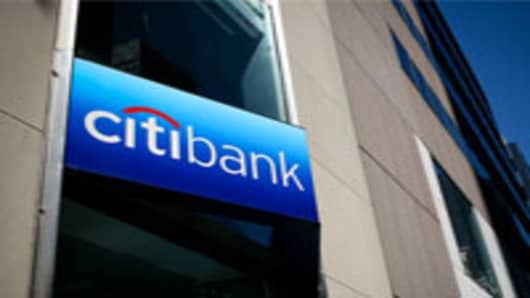"We believe over (the) near term, Citigroup will need to raise over $30 billion in capital through either asset sales, a dividend cut, a capital raise, or combination thereof," wrote Meredith Whitney, an analyst at CIBC World Markets Corp.
Her downgrade of Citigroup to "sector underperformer" from "sector performer" spurred a Thursday decline of as much as 9 percent in shares of New York-based Citigroup .
The stock fell to its lowest level since May 2003, five months before Chief Executive Charles Prince took over.
Its decline dragged down broader stock indexes and boosted Treasury prices, and led to growing calls for Prince's ouster. This came after a $6.5 billion write-down for loan and credit
losses led to a 57 percent drop in third-quarter profit.
No Comment From Bank
Citigroup spokesman Mike Hanretta declined to comment. He said the bank does not discuss analyst reports, and that the board of directors is responsible for setting the dividend.
But analysts said that with a $2.7 billion quarterly dividend to pay, equal to 54 cents per share, Citigroup might have to consider asset sales or limiting trading activity, reducing potential for profitability.
"They're hoping the mortgage market and structured credit markets will come back to life," said Roy Smith, a professor at New York University's business school and former Goldman Sachs
& Co. partner. "If they don't, Citi likely have to write down a lot of assets, and then you do get into issues of capital."
The capital level is a measure that regulators use to ensure that banks have sufficient funds to cover losses.
According to the U.S. Federal Reserve, a "well-capitalized" bank must have a tier-1 capital ratio of at least 6 percent. Such a bank cannot normally pay dividends that would leave it
undercapitalized.
Citigroup's capital ratio fell last quarter to 7.4 percent from 7.91 percent in the second quarter, and below its 7.5 percent target. In contrast, the tier-1 ratios were 8.22 percent at Bank of America Corp, 8.4 percent at JPMorgan Chase, 7.2 percent at Wachovia and 8.21 percent at Wells Fargo.
Suspended Stock Buyback
On Oct. 15, Chief Financial Officer Gary Crittenden said Citigroup hoped to return to targeted capital levels early next year. He said the bank would suspend stock buybacks, and use
stock to buy the remaining 32 percent of Japanese brokerage Nikko Cordial for $4.6 billion.
Not enough, Credit Suisse analyst Susan Roth Katzke wrote.


